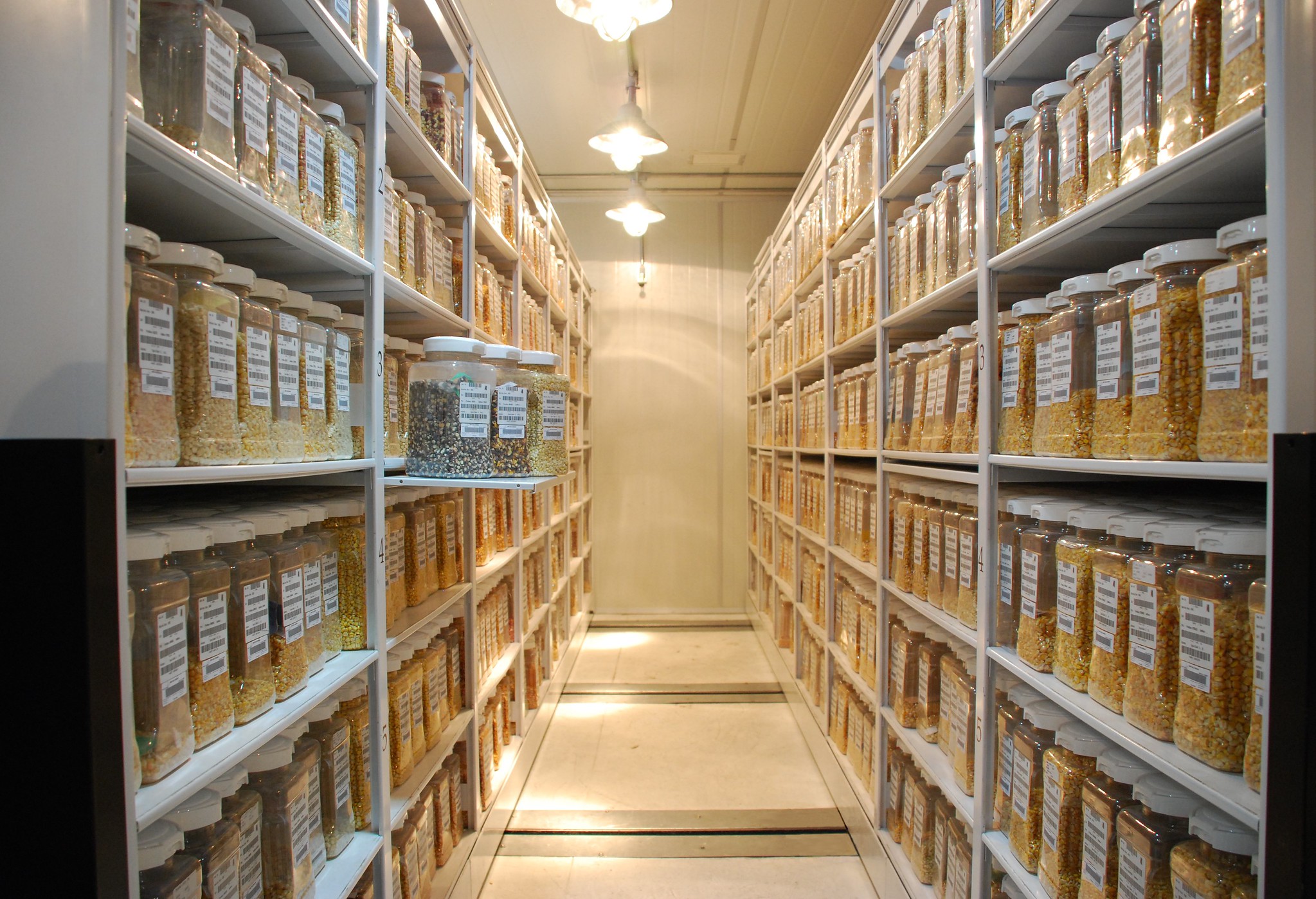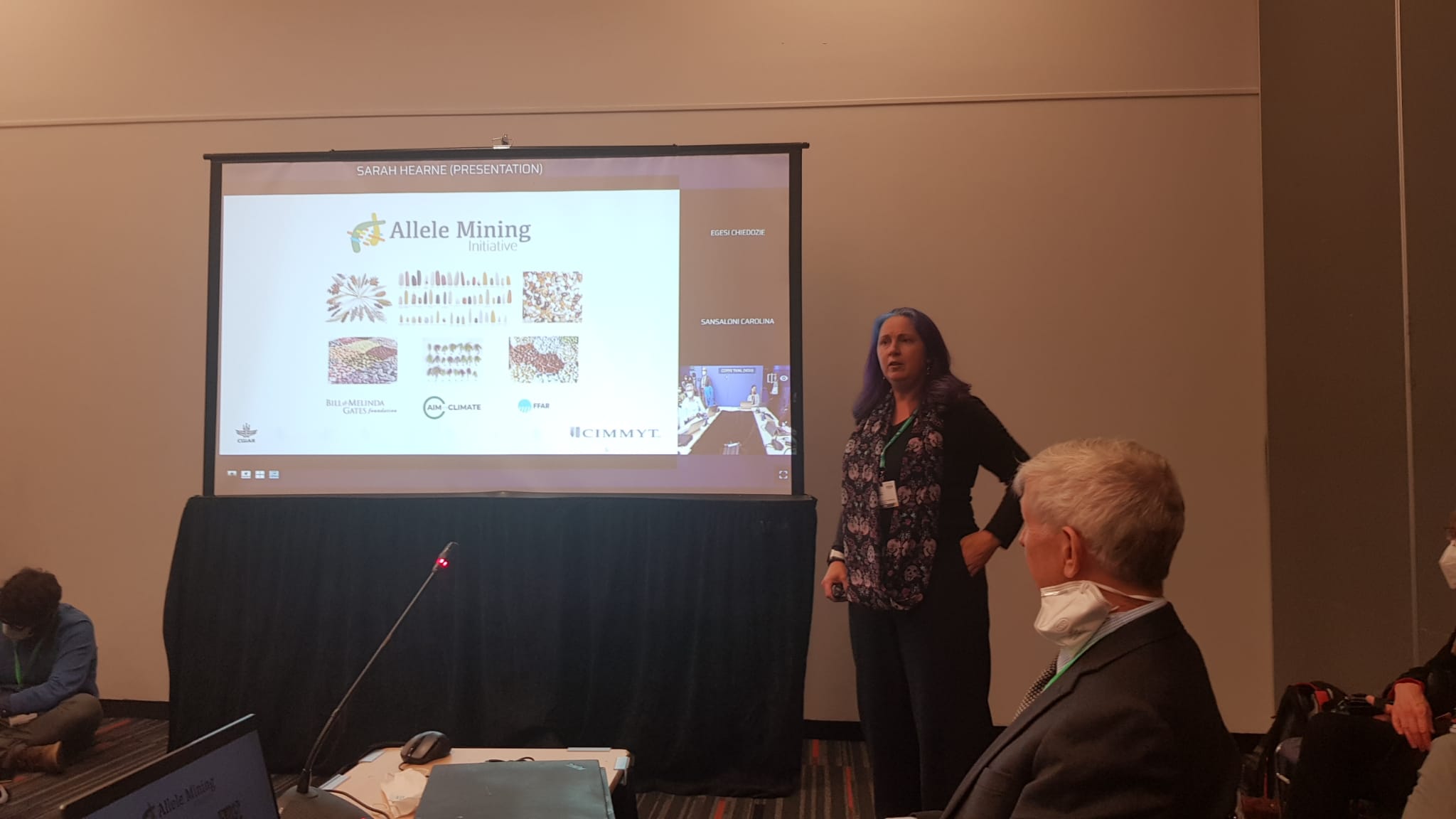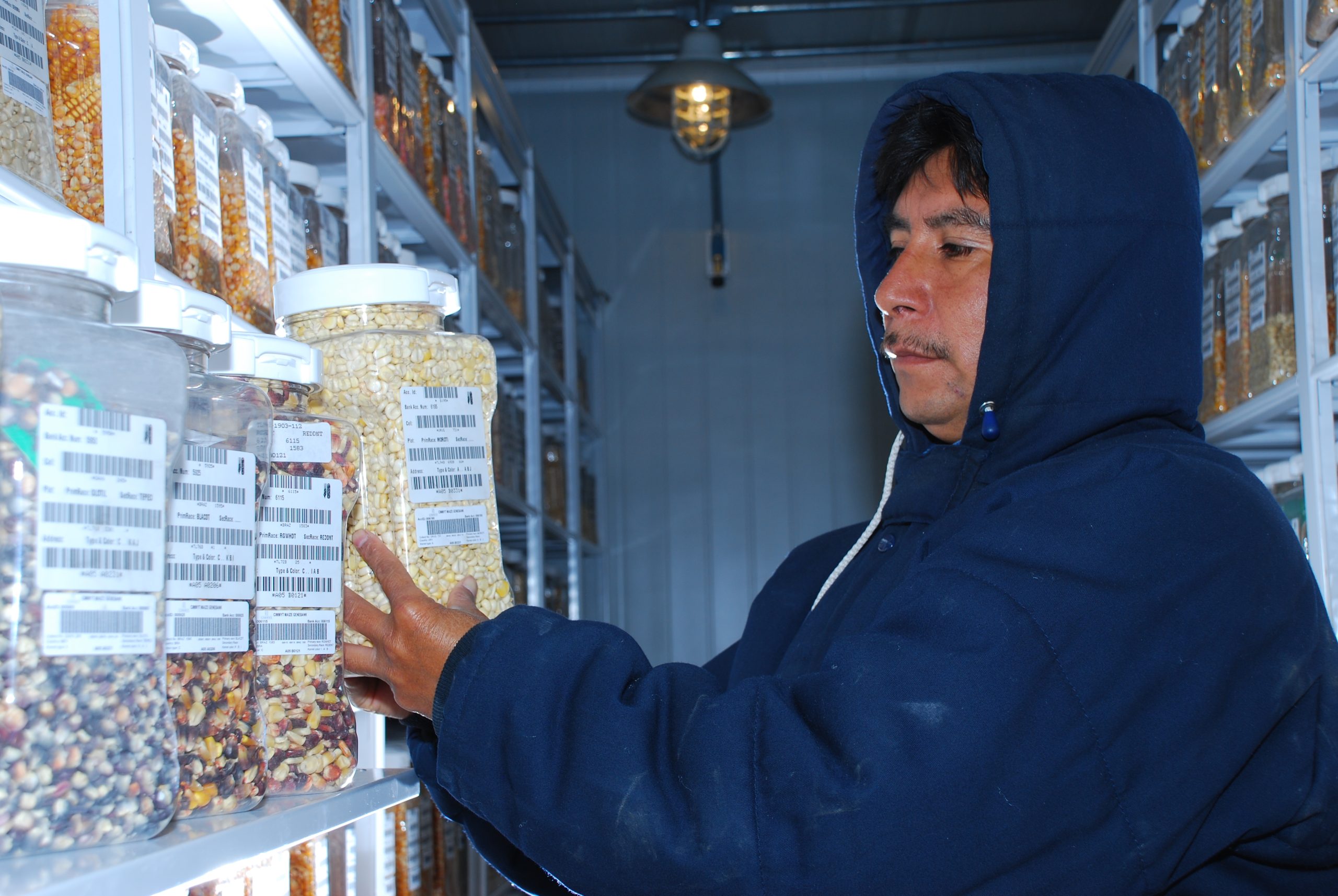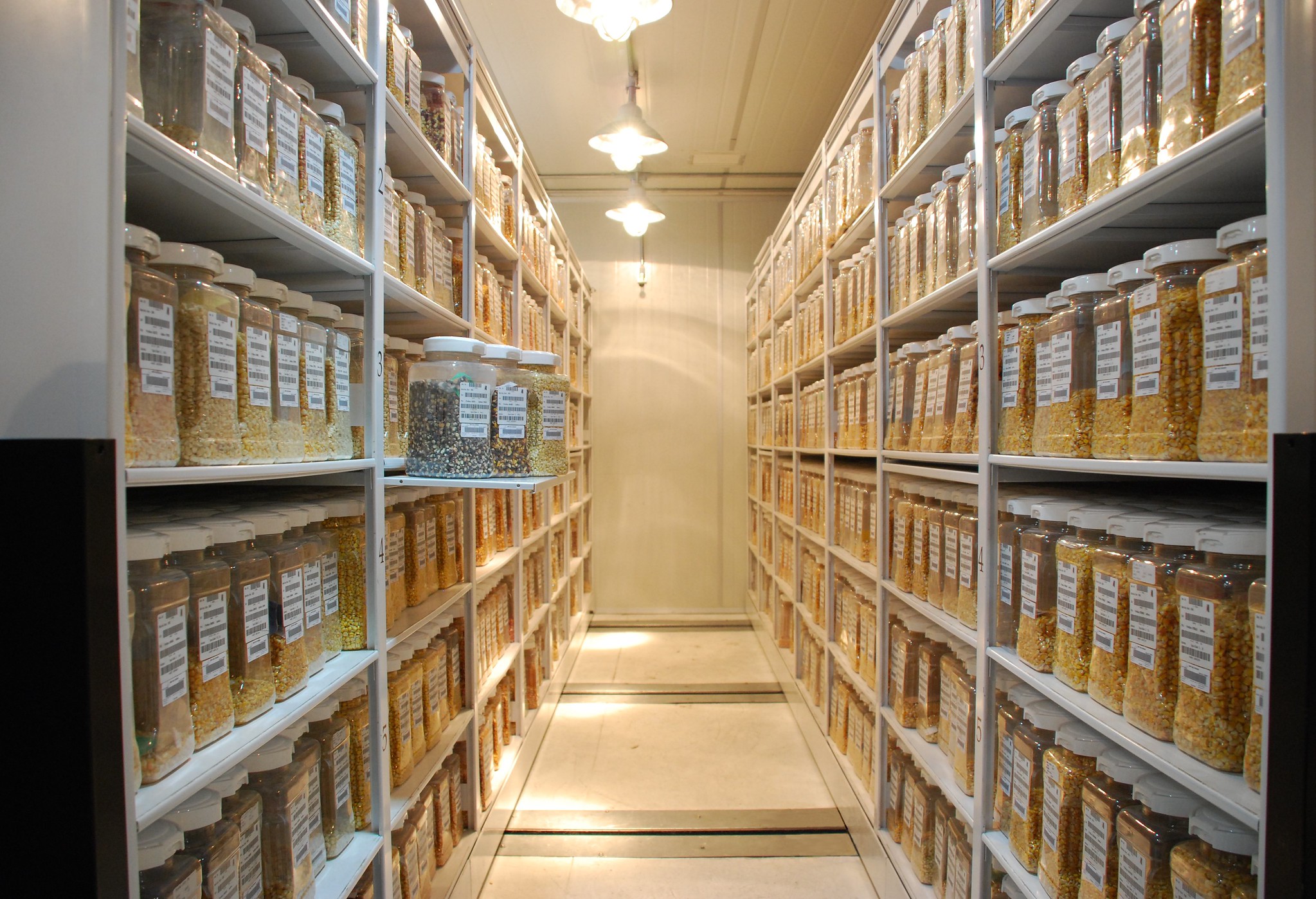
The Mining Useful Alleles for Climate Change Adaptation from CGIAR Genebanks project, led by the International Maize and Wheat Improvement Center (CIMMYT), is expanding the use of biodiversity held in the world’s genebanks to develop new climate-smart crop varieties for millions of small-scale farmers worldwide. It aims to identify plant accessions in genebanks that contain alleles, or gene variations, responsible for characteristics such as heat, drought or salt tolerance, and to facilitate their use in breeding climate-resilient crop varieties.
Through this project, breeders will learn how to use genebank materials more effectively and efficiently to develop climate-smart versions of important food crops, including cassava, maize, sorghum cowpea, and rice.
Building on 10 years of support to CIMMYT from the Mexican government, CGIAR Trust Fund contributors, and the UK Biotechnology and Biological Sciences Research Council, the Mining Useful Alleles for Climate Change Adaptation from CGIAR Genebanks project combines the use of cutting-edge technologies and approaches, high-performance computing, GIS mapping, and new plant breeding methods to identify and use accessions with high value for climate-adaptive breeding of varieties needed by farmers and consumers.
This project works closely with the Fast Tracking Climate Solutions from CGIAR Germplasm Banks project.
Objectives
- Support faster and more cost-effective discovery and deployment of climate -adaptive alleles from the world’s germplasm collections
- Test integrated approaches for five major crops (i.e., cassava, maize, sorghum, cowpea, and rice), providing a scalable model for the rapid and cost-effective discovery and deployment of climate-adaptive alleles.


 Climate adaptation and mitigation
Climate adaptation and mitigation 

